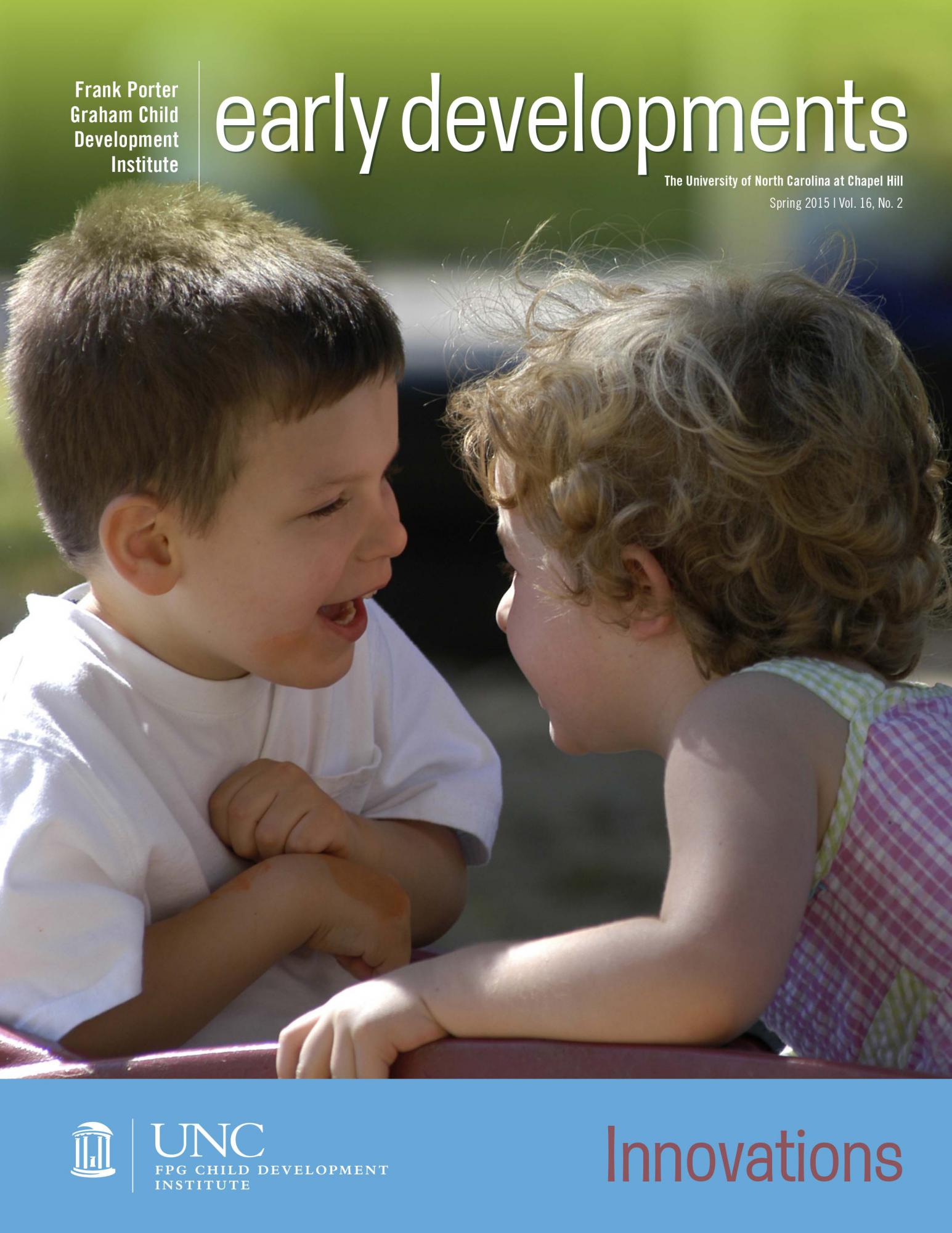The Spring 2015 Edition of "Early Developments" Spotlights FPG's Innovations
 In this issue of Early Developments, we tell the stories behind three fascinating, and very different, innovations.
In this issue of Early Developments, we tell the stories behind three fascinating, and very different, innovations.
Chronicling the Cutting Edge:
Ethics and the Promise of New Genomic Medicine
We open with FPG senior scientist Debra Skinner, who is capturing what she calls “the ethnography of the result.” With FPG post-doc Kelly Raspberry, Skinner studies the social and cultural aspects of clinical exome sequencing, a cutting-edge option for medical professionals to diagnose the genetic cause of illnesses and their potential courses of treatment. “There are famous chronicles of the discovery of the double helix or of the making of penicillin,” Skinner says. “This is one of those times: I get to chronicle genomic medicine as it’s being formed.”
Building High-Quality Systems:
The ECTA Center’s New System Framework
In our second story, Christina Kasprzak, co-director of FPG’s Early Childhood Technical Assistance Center (ECTA Center), says her team’s goal was “to design a tool to help each state fully consider what it means to have a high-quality system.” After 18 months of thorough collaboration with dozens of experts, the ECTA Center has succeeded; they have created a comprehensive System Framework designed to support states in building and sustaining high-quality early intervention and preschool special education systems.
The Inclusive Classroom Profile:
Measuring Instructional Practices in Inclusive Preschool Settings
Our last feature story looks at a pilot study designed to test the results of a new measure, the Inclusive Classroom Profile (ICP). According to ICP developer Elena Soukakou, the rating scale “is measuring what it was designed to measure in a reliable and accurate way.” Part of the ICP’s effectiveness is its ability to differentiate between the levels of quality in various types of inclusive classrooms, and the instrument will be the subject of much discussion in two special sessions at the National Early Childhood Inclusion Institute. In addition, ICP training also will remain available through FPG’s Professional Development Center (the PDC@FPG).
News rounds out this issue of Early Developments. We celebrate TA leader Lynne Kahn’s career and impact on the occasion of her retirement. We also welcome new members to FPG’s executive leadership board and note new awards and honors for FPG’s contributions and innovations.
